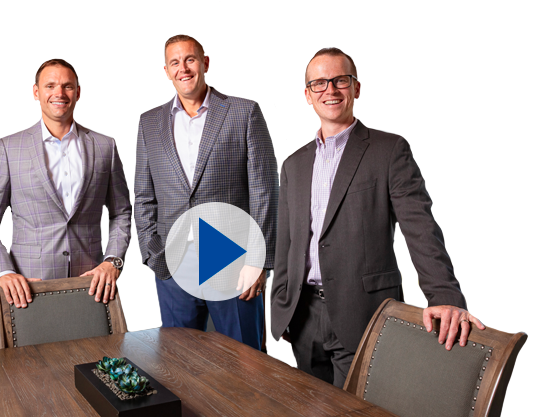SAY HELLO TO
SHP FINANCIAL
At SHP Financial, we believe everyone deserves to spend more time living and dreaming than wondering and worrying during retirement. Our team of financial services professionals can help you create a well-thought-out strategy utilizing holistic financial planning to address your financial needs and concerns, leaving no stone unturned.
We offer a wide range of financial planning and wealth management services focused on individuals who are in or nearing retirement age. From our main office in Plymouth, Massachusetts, our fully staffed offices in Hyannis and Woburn, and our satellite office in Braintree, our goal is to help you manage your finances so you can pursue your goals.
Once we help develop your plan, we will not stop there. Now begins the journey. We will be there to help you implement and manage your plan every step of the way for the rest of your life. Take the first step toward having the retirement you’ve always dreamed of!
SAY HELLO TO
SHP FINANCIAL
At SHP Financial, we believe everyone should be able to live the retirement they’ve always wanted. Our team of professionals can help you create a well-thought-out strategy to help you address your financial needs and concerns.
We offer a wide range of financial planning and wealth management services focused on individuals who are in or nearing retirement age. From our main office in Plymouth MA, our fully staffed offices in Hyannis and Woburn, and our satellite offices in Braintree, Westborough, and Dartmouth, our goal is to help you manage your finances so you can pursue your goals.
Once we help develop your plan, we will not stop there. Now, begins the journey. We will be there to help you implement and manage your plan every step of the way for the rest of your life. Take the first step toward having the retirement you’ve always dreamed of!

PROVIDING TOOLS
FOR YOUR SUCCESS
Our passion is to provide everyone with that “sheltered harbor” for their financial freedom because it’s not about the money. It’s about being able to preserve the aspects of life that make it so special. And our custom Retirement Road Map® process can help get you to where you want to be in retirement!
THE SHP FINANCIAL
RETIREMENT ROAD MAP® PROCESS
Step 1: Income Planning
- We’ll plan and help create a strong and predictable income which is the foundation of a comfortable lifestyle.
Step 2: Investment Planning
- Our investment planning is based on a philosophy of controlling for volatility and eliminating unnecessary fees.
Step 3: Tax Planning
- We’ll walk you through the numerous tax planning strategies that can minimize your taxes in a legal and ethical manner.
Step 4: Health Care Planning
- The costs of healthcare are rising and will be part of your life both pre-retirement and post-retirement. We’ll plan for and address these costs.
Step 5: Legacy Planning
- Since we all will eventually pass, it is critical to have a plan to make sure that your hard-earned assets go to your loved ones and charities in the most efficient manner.
























